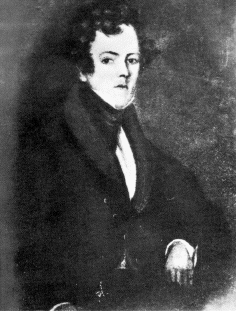

The interval between the sponging-house and the prison was passed by the sorrowful lad in running errands and carrying messages for the prisoner, delivered with swollen eyes and through shining tears; and the last words said to him by his father before he was finally carried to the Marshalsea, were to the effect that the sun was set upon him for ever. "I really believed at the time," said Dickens to me, "that they had broken my heart." He took afterwards ample revenge for this false alarm by making all the world laugh at them in David Copperfield.
The readers of Mr. Micawber's history who remember David's first visit to the Marshalsea prison, and how upon seeing the turnkey he recalled the turnkey in the blanket in Roderick Random, will read with curious interest what follows, written as a personal experience of fact two or three years before the fiction had even entered into his thoughts.
"My father was waiting for me in the lodge, and we went up to his room (on the top story but one), and cried very much. And he told me, I remember, to take warning by the Marshalsea, and to observe that if a man had twenty pounds a year, and spent nineteen pounds nineteen shillings and sixpence, he would be happy; but that a shilling spent the other way would make him wretched. I see the fire we sat before now; with two bricks inside the rusted grate, one on each side, to prevent its burning too many coals. Some other debtor shared the room with him, who came in by and by; and as the dinner was a joint-stock repast, I was sent up to 'Captain Porter' in the room overhead, with Mr. Dickens's compliments, and I was his son, and could he, Captain P., lend me a knife and fork?
"Captain Porter lent the knife and fork, with his compliments in return. There was a very dirty lady in his little room; and two wan girls, his daughters, with shock heads of hair. I thought I should not have liked to borrow Captain Porter's comb. The Captain himself was in the last extremity of shabbiness; and if I could draw at all, I would draw an accurate portrait of the old, old brown great-coat he wore, with no other coat below it. His whiskers were large. I saw his bed rolled up in a corner; and what plates and dishes and pots he had, on a shelf; and I knew (God knows how) that the two girls with the shock heads were Captain Porter's natural children, and that the dirty lady was not married to Captain P. My timid, wondering station on his threshold was not occupied more than a couple of minutes, I dare say; but I came down again to the room below with all this as surely in my knowledge, as the knife and fork were in my hand."
(John Forster, The Life of Charles Dickens)
